'Jaw Dropping': Ex-FBI agent describes Ohio corruption case on House Bill 6
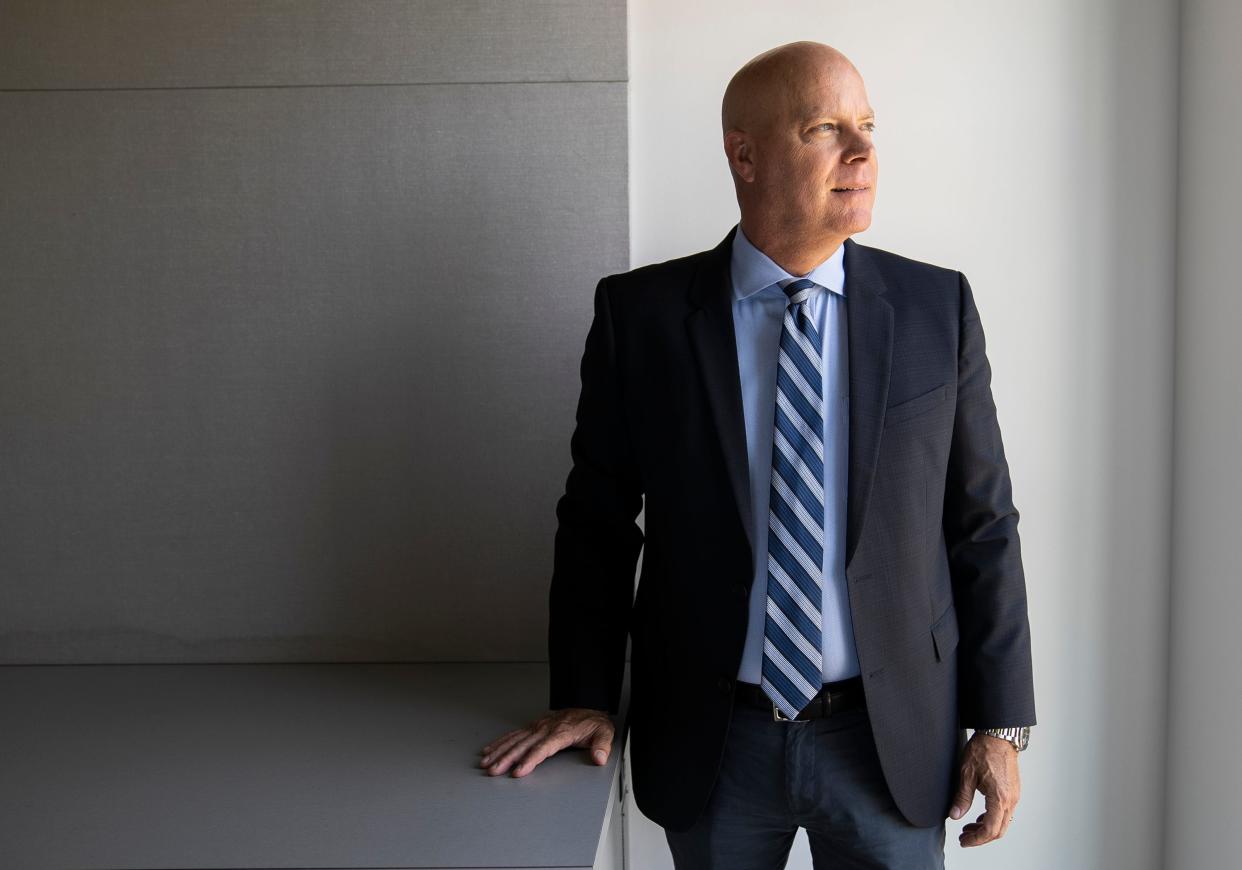
- Oops!Something went wrong.Please try again later.
- Oops!Something went wrong.Please try again later.
When FBI agents swooped onto Larry Householder's farm in Perry County to arrest him, they encountered a compliant political leader, an angry wife and a house in disarray, according to Jeff Williams, the former leader of the FBI public corruption team.
In an exclusive interview with the USA TODAY Network Ohio bureau, Williams revealed details about the Householder investigation and arrest and talked about how public corruption undermines democracy.
When agents showed up around 6 a.m. on July 21, 2020, then-Ohio House Speaker Larry Householder didn't make any comments or ask questions as they put him in handcuffs, Williams said.
His wife Taundra Householder, however, "barricaded" the door, he said.
"It turned into quite a scene with her at the door and refusing to let agents in and some of the comments that she made," Williams said. Taundra Householder, a teacher in New Lexington, demanded to know which local judge authorized the search warrant and agents explained that it was a federal case, according to Williams.
"There were agents who felt she was way over the line and perhaps should have been arrested and detained. That was the last thing we needed to do was escalate things to that or ram down the door," Williams said. "Ultimately, she acquiesced."
Taundra Householder did not respond to a request to comment sent via Householder's attorney.

Once inside the farmhouse, Williams said it was in disarray, but he declined to elaborate.
Later that day, federal prosecutors said in an 80-page criminal complaint that a utility company pumped $61 million through dark money groups to help Householder seize political power at the statehouse and in return Householder passed and defended House Bill 6, a $1.3 billion bailout that impacted 4.5 million Ohio consumers.
Williams described the conduct of the co-conspirators and their braggadocio as "jaw-dropping."
Williams said: "We felt very confident in the investigation, and we felt very confident in the evidence we had collected and that it was overwhelming. I think that shows through in the complaint."
Nearly three years after the arrests, U.S. District Court Judge Timothy Black blasted Householder for breaching the public trust and sentenced him to 20 years in prison − the maximum. Black sentenced former Ohio Republican Party chairman Matt Borges, who was also convicted, to five years in prison.
Both men are appealing their convictions.
Who is Jeff Williams?
A suburban Columbus native, Williams joined the FBI in 1999 after working as a forensic scientist at the Ohio Bureau of Criminal Investigation. His science background proved helpful on the anthrax attacks of 2001 and the Washington, D.C., sniper case of 2002 but ultimately, the FBI assigned him to work white-collar and corruption cases in Maryland.
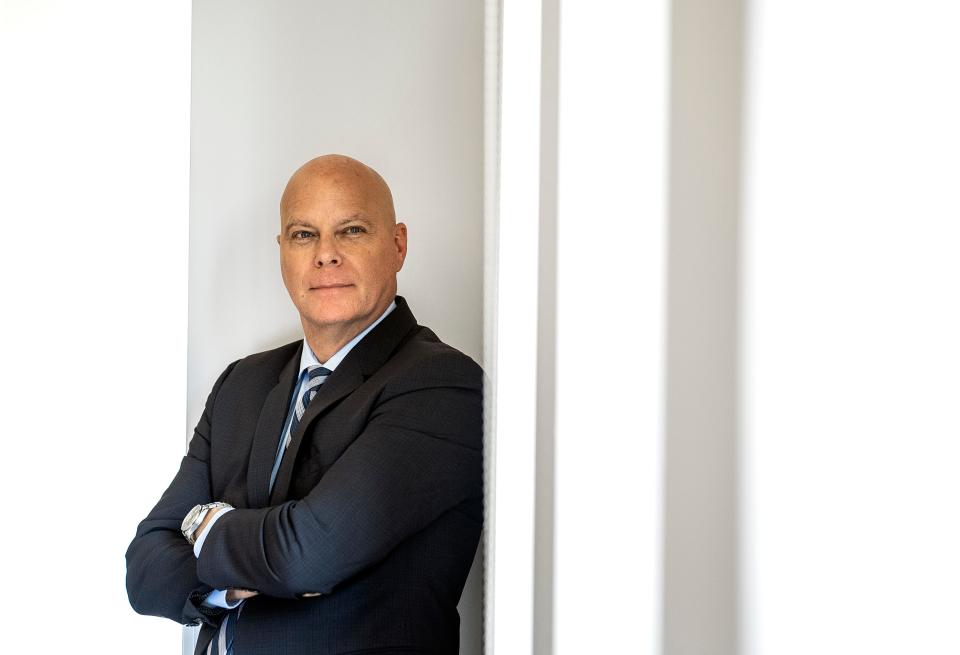
In 2006 Williams returned home to focus on corruption cases in Ohio. His return came shortly after Householder left the House speaker's post due to term limits but facing a federal investigation into pay-to-play allegations. In 2006, the U.S. Department of Justice closed that case without charges.
It was the first Householder investigation that prompted a bigger focus by the FBI on the Ohio Statehouse, Williams said.
Ohio proved to be fertile ground.
Over the course of 16 years, Williams operated outside the public eye, quietly building a network of sources, learning the political powerbrokers, looking for red flags and running cases. Williams and his team worked with state and federal prosecutors to convict Ohio lawmakers Carlton Weddington and Clayton Luckie, deputy state treasurer Amer Ahmad, lobbyists John Rabenold and John Raphael, and former Dayton city commissioner Joey Williams. Cincinnati City Council members Tamaya Dennard, P.G. Sittenfeld and Jeff Pastor were investigated by another FBI team based there.
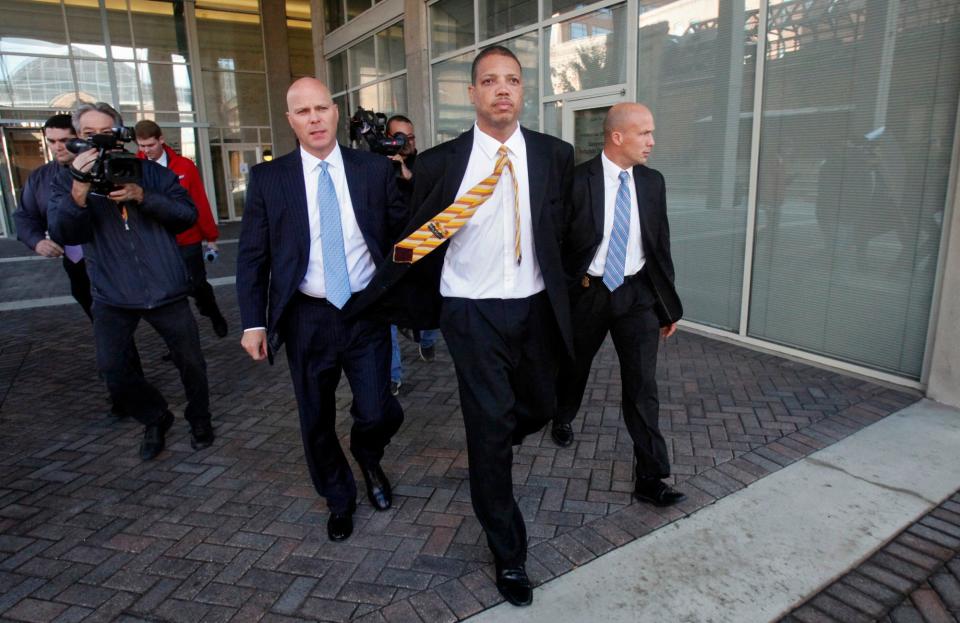
Over the years, Williams saw overlapping themes and players in multiple investigations. In many ways, Williams' work all built toward the biggest public corruption investigation in state history: House Bill 6. The legislation, signed into law in July 2019, provided $1.3 billion in subsidies to bailout FirstEnergy's aging nuclear power plants.
Arrested simultaneously to Householder were Borges, lobbyists Neil Clark and Juan Cespedes and political consultant Jeff Longstreth. They were accused of participating in the pay-to-play conspiracy.
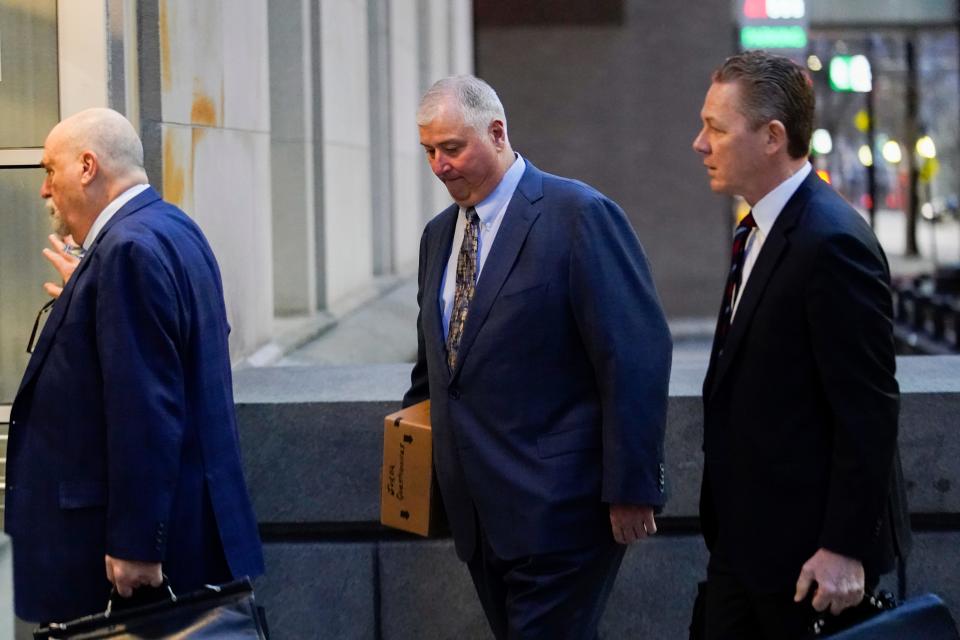
A jury found Householder and Borges guilty; Cespedes and Longstreth signed guilty pleas; and Clark died by suicide before the case went to trial.
Williams said it was satisfying to end his career on such a big case.
"The prosecutors and the FBI were able to shine a bright light on this type of conduct," he said. "The public should demand that their public officials and public servants serve them and the constituents. And that they're not there to line their pockets, they're not there to look out for their own interests and their own power."
How did the case get started?
FBI Special Agent Blane Wetzel, who worked side by side with Williams, testified that the case opened in May 2019 when then-state representative Dave Greenspan called the FBI to report undue pressure by Householder to support House Bill 6.
But even before that, Neil Clark was on the FBI's radar.
In a separate corruption investigation into Cincinnati City Hall, agents wiretapped Clark's phone and recorded his meetings with undercover agents posing as real estate developers interested in sports betting.
Clark led them to Householder.
The recordings proved to be clutch in the House Bill 6 case.
Householder told jurors he returned to the Ohio House of Representatives to tackle the divisiveness in politics. But Assistant U.S. Attorney Emily Glatfelter played recorded calls between Householder and Clark discussing plans to move against two fellow Republicans.
“Just say if you’re going to (expletive) with me, I’m going to (expletive) with your kids,” Householder told Clark.
Householder and Borges' legal teams objected to the use of the recordings at trial because they couldn't cross-examine Clark.
Neil Clark's suicide and memoir
Clark, a self-described super-lobbyist, pleaded not guilty in the case. He died by suicide in Florida in March 2021, two years before it went to trial.
He was found wearing a "DeWine for Governor" T-shirt. In his memoir published after his death Clark alleges that DeWine too took undisclosed dark money from FirstEnergy for his campaign.
In a recording played at trial, Clark said FirstEnergy gave $3 million to a dark money group backing DeWine, but the Republican governor didn’t come through when the company needed help passing its $1.3 billion nuclear bailout.
Williams said there is no way to tell for certain what Clark's intention was when he wore the T-shirt.
"Many of us have speculated about this but we've come to the same conclusion that it appears to be a shot at Mike DeWine."
Private investigators watching FBI meeting
A big break in the investigation came in September 2020, during the throes of the push for a referendum on House Bill 6 and a fierce counter-campaign. Political operative Tyler Fehrman called the FBI to say that his long-time mentor, Matt Borges, offered him a bribe in exchange for intel on the referendum campaign.
More: 'It's terrifying': FBI tipster who wore wire in Larry Householder, Matt Borges case talks
Fehrman was working on the referendum to block the bailout law. Borges was working the other side.
Williams said investigators already had wiretaps, statements to undercover agents and an "avalanche of evidence" but Fehrman's assistance bolstered the case.
At the request of agents, Fehrman met with Borges at a Columbus-area Starbucks. The FBI had eyes on the meetup. And so did the private investigators that Borges had hired to follow Fehrman.
"We kind of joked that it made for a congested parking lot of interested parties," Williams said.
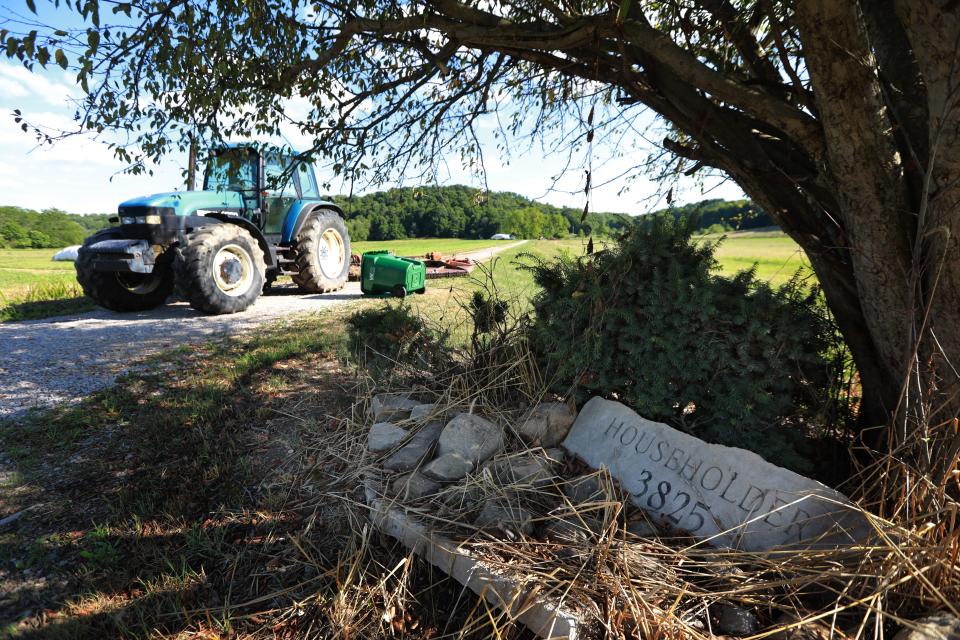
Damaging testimony
Co-conspirators Longstreth and Cespedes testified at the Householder and Borges trial. Williams said their cooperation helped advance the case and give context the text messages, meetings and bank records presented at trial.
Even more damaging, though, was Householder's decision to testify in his own defense, which opened him up to a brutal cross-examination by Glatfelter, Williams said. Glatfelter had a forceful command of exhibits and Householder's testimony.
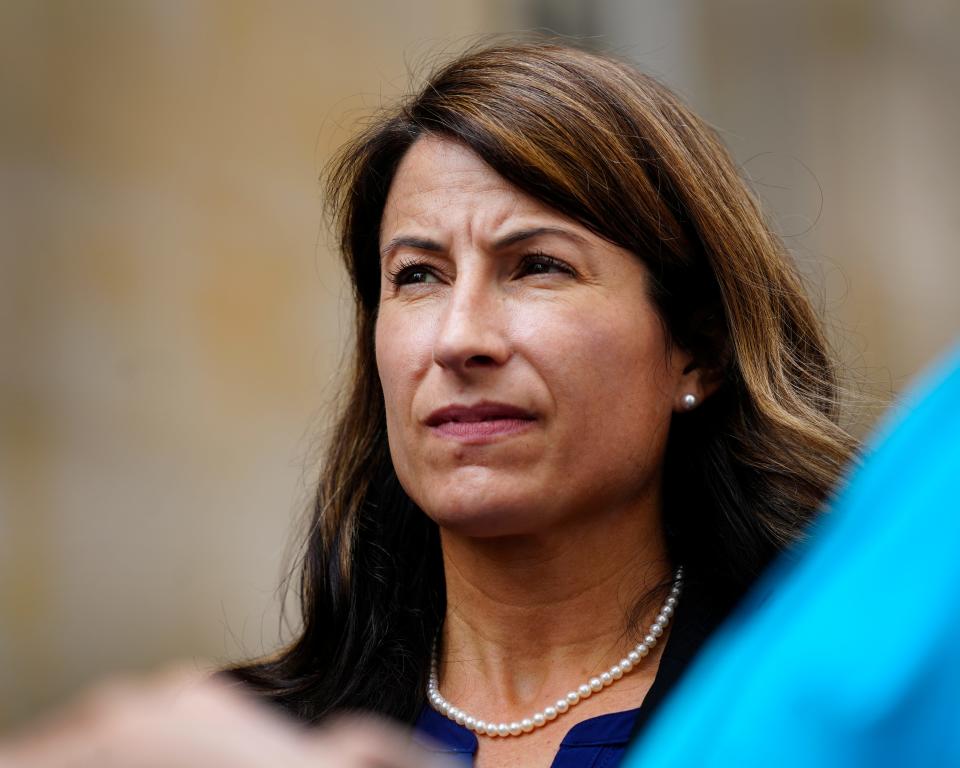
Politicians often dodge and evade questions from the public and reporters. "You can't do that when you're on the witness stand," he said.
Working closely with Glatfelter was Wetzel, who defense counsel tried to portray as young and inexperienced.
Williams, though, praised Wetzel as a smart, hard-working and talented investigator. And he noted that Wetzel's experience as an aide in the Michigan Legislature, including working on energy policy, helped the investigation.
Will there be more indictments?
In federal court records, former FirstEnergy executives are publicly identified as orchestrating the bribe payments and the company admitted in a deferred prosecution agreement that it bribed Sam Randazzo, who led the Public Utilities Commission of Ohio. The executives and Randazzo have denied any wrongdoing.
Now that the Householder and Borges trial is over, the open question is: Will there be more indictments?
Williams said he can only surmise that his former colleagues are "diligently combing through evidence and making assessments" about potential targets and charges.
"It's not a stretch to think that there may be additional charges that may be coming at some point," he said.
Laura Bischoff is a reporter for the USA TODAY Network Ohio Bureau, which serves the Columbus Dispatch, Cincinnati Enquirer, Akron Beacon Journal and 18 other affiliated news organizations across Ohio.
This article originally appeared on The Columbus Dispatch: Retired FBI agent talks about Ohio's biggest public corruption case.

